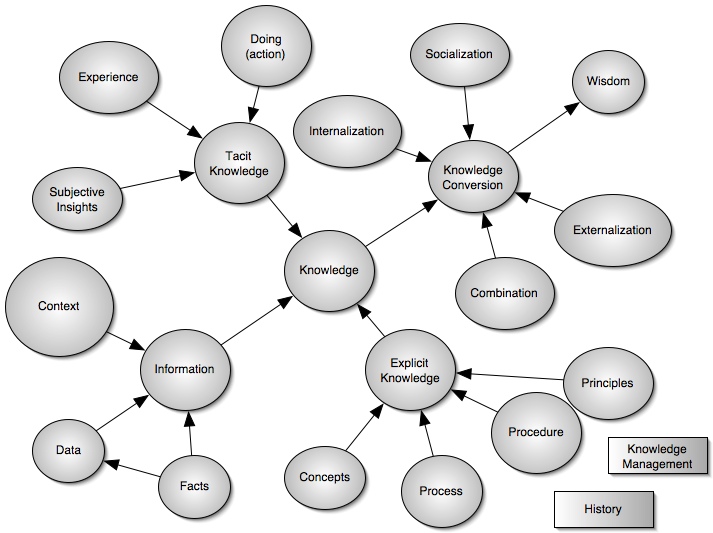Note: This site is moving to KnowledgeJump.com. Please reset your bookmark.
Jean Lave and Etienne Wenger - Community of Practice - 1991
As new practitioners discuss their problems with their fellows, or learn from their colleagues how to integrate the practice with the rest of their business workflow; in such a way, the CoP becomes a repository and dissemination mechanism combined for best practice - Etienne Wenger Communities of Practice: Learning, Meaning, and Identity (1998).
Jean Lave and Etienne Wenger pioneer the concept of a Community of Practice (CoP) in their book, Situated Learning: Legitimate Peripheral Participation. (1991)
They theorized that knowledge can be developed through social and spontaneous communities that are driven by common interests and passions, whereas innovation lies in the interaction between different communities.
A community of practice defines itself along three dimensions:
- What it is about: A joint enterprise as understood and continually renegotiated by its members.
- How it functions: A mutual engagement that bind members together into a social entity.
- What capability it has produced: The shared repertoire of communal resources (routines, sensibilities, artifacts, vocabulary, styles, etc.) that members have developed over time.
These community of practices normally go through five stages:
- Potential: People face similar situations without the benefit of a group to help.
- Coalescing: People come together and recognize the potential of forming a group.
- Active: The members of a group develop a community of practice.
- Dispersed: Members no longer engage very intensely, but the community still lives as a center of knowledge for the group.
- The community is no longer central, but people still remember it as a significant part of their lives.
A CoP involves organizing around some particular area of knowledge that gives members a sense of joint enterprise and identity. It also involves developing a set of relationships over time and developing communities around things that matter to its members. For a CoP to function, it needs to generate a shared repertoire of ideas, commitments and memories. In addition, it also needs to develop resources, such as tools, documents, routines, vocabulary and symbols that carry the wealth of knowledge within the community.
Lave and Wenger
Jean Lave is a social anthropologist at the University of California, Berkeley, and has a interest in social theory.
Etienne Wenger has a Ph.D. in artificial intelligence from the University of California at Irvine and joined the Institute for Research on Learning, Palo Alto. He is now an independent consultant specializing in developing communities of practice within organizations).
Further Reading
Communities of Practice and eLearning
Next Step
Return to the Information and Knowledge page


